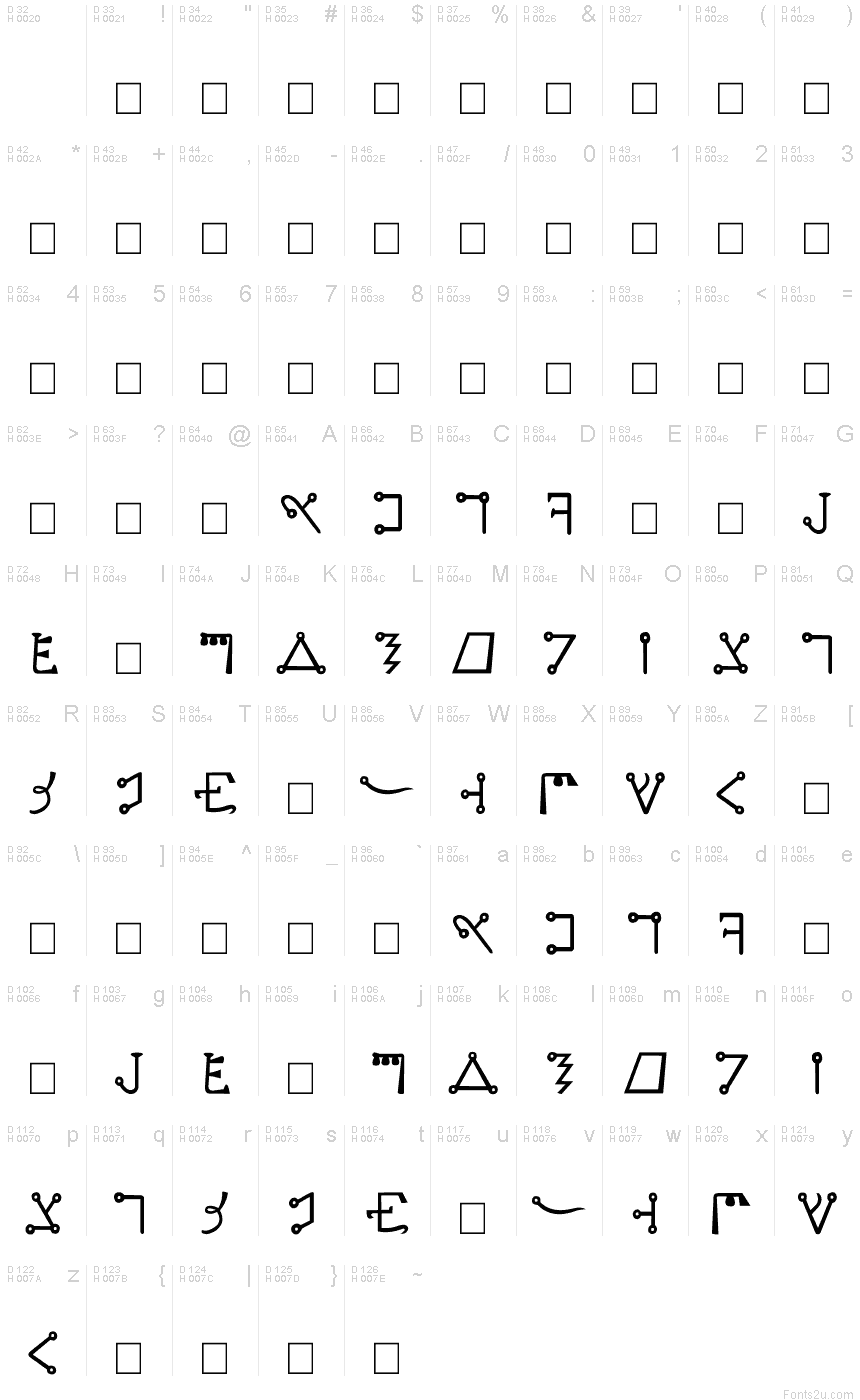Passage du Fleuve
TrueTypePersonal use
- Accents (partial)
- Euro
Passage-du-Fleuve.ttf
Tags
Character map
Please use the pulldown menu to view different character maps contained in this font.

Basic font information
Copyright notice
© 2002 Daniel U. Thibault. All Rights Reserved.
Font family
Passage du Fleuve
Font subfamily
Regular
Unique subfamily identification
Urhixidur:Passage du Fleuve Regular:2002
Full font name
Passage du Fleuve
Name table version
Version 1.00; 2002 August 28
Postscript font name
Passage_du_Fleuve
Manufacturer name
Designer
Daniel U. Thibault
Description
Passage du Fleuve 2002 1.00
A medieval (circa XIIth-XVth century) occult script derived from Hebrew. The French name means "Passing the River" and is probably an allusion to Deuteronomy, Chapter II, Verses 13-16, where Moses leads Israel across the river Zered into Canaan. With the Celestial and Malachim/Angelic/Royal scripts, it forms the Seraphic family of scripts. It is currently used by some Wiccan practitioners.
Passage du Fleuve is included by Heinrich Cornelius Agrippa in Book III (Ceremonial Magic), Chapter XXX («Another manner of making Characters, delivered by Cabalists») of his De Occulta Philosophia (written in 1509 and first printed in 1533), unfortunately without mentioning any details. Francis Barrett derived the alphabet from Agrippa, along with much of the text of Agrippa's book, and presented it in his «The Magus: A Complete System of Occult Philosophy», published in 1801.
A medieval (circa XIIth-XVth century) occult script derived from Hebrew. The French name means "Passing the River" and is probably an allusion to Deuteronomy, Chapter II, Verses 13-16, where Moses leads Israel across the river Zered into Canaan. With the Celestial and Malachim/Angelic/Royal scripts, it forms the Seraphic family of scripts. It is currently used by some Wiccan practitioners.
Passage du Fleuve is included by Heinrich Cornelius Agrippa in Book III (Ceremonial Magic), Chapter XXX («Another manner of making Characters, delivered by Cabalists») of his De Occulta Philosophia (written in 1509 and first printed in 1533), unfortunately without mentioning any details. Francis Barrett derived the alphabet from Agrippa, along with much of the text of Agrippa's book, and presented it in his «The Magus: A Complete System of Occult Philosophy», published in 1801.
Extended font information
Platforms supported
PlatformEncoding
UnicodeUnicode 1.0 semantics
MacintoshRoman
MicrosoftUnicode BMP only
Font details
Created2002-08-17
Revision1
Glyph count248
Units per Em2048
Embedding rightsEmbedding for editing allowed
Family classSymbolic
WeightMedium (normal)
WidthMedium (normal)
Mac styleBold
DirectionOnly strongly left to right glyphs + contains neutrals
Pattern natureRegular
PitchNot monospaced